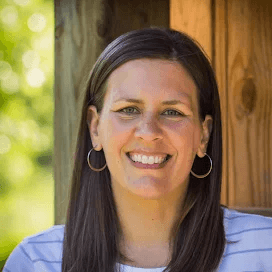It is a rare situation in which the whole world feels anxiety at the same time, but now is one of those times. The COVID-19 pandemic is sweeping across the world, across this nation, taking thousands of lives and making hundreds of thousands sick. And because of it, many of you are on edge, with a collective fear of the unknown.
 There are many unknowns about when you will be able to go back to work and provide for your families. There are unknowns regarding when the children will get to go back to school. There are unknowns about being able to pay bills or when life will go back to normal again. There is so much uncertainty, so much fear of the unknown.
There are many unknowns about when you will be able to go back to work and provide for your families. There are unknowns regarding when the children will get to go back to school. There are unknowns about being able to pay bills or when life will go back to normal again. There is so much uncertainty, so much fear of the unknown.
The world has shut down. Many of you may have lost your jobs. You may be quarantined because you are sick. You may not be able to see your elderly parents, and you are worried about them. You may be overwhelmed because you are suddenly homeschooling and trying to work from home, and it is just not working. Maybe you are grieving the loss of someone or something you were looking forward to. Westlake Christian Counseling is here to support you through life’s uncertainties, offering faith-based guidance, comfort, and hope in difficult times.
Maybe your anxiety has gotten much worse since all of this began. The Bible talks often about fear, anxiety, and worry. Anxiety in the Bible shows that it has been a human problem since the beginning. It is something that brings everyone together, helps you know that you are not alone in this. There are many voices right now that could be trying to grab your attention, but amid the anxiety that you feel, it is wise to focus on Scripture for anxiety.
What does the Bible say about anxiety?
Anxiety in a person’s heart weighs it down, but a good word cheers it up. – Proverbs 12:25
If you struggle with feelings of anxiety or fear of the unknown, then you know this is true. It does weigh a heart down with thoughts of worry about finances, health, occupation, relationships, social situations, and others.
When anxiety is present, it is as if you cannot think about anything else but only what is worrying you. You struggle to focus on what is true and focus instead on the “what ifs.” Anxiety keeps you paralyzed at times, unable to live fully.
Casting all your cares on him, because he cares for you. – 1 Peter 5:7
 Here is where “the good word” comes in. Peter encourages his readers to not just tell God in prayer about how you feel when you are anxious but to throw your anxiety at his feet. You may not want to “burden” God by telling him your worries, but he wants you to because he cares deeply for you.
Here is where “the good word” comes in. Peter encourages his readers to not just tell God in prayer about how you feel when you are anxious but to throw your anxiety at his feet. You may not want to “burden” God by telling him your worries, but he wants you to because he cares deeply for you.
He does not want your heart weighed down by fear. He wants you to live in freedom. He wants to carry your burdens so that you don’t have to. So be honest with God in prayer. Tell him that you are scared and uncertain. Tell him the thoughts running through your mind.
Do not worry about anything, but in everything, through prayer and petition with thanksgiving, present your requests to God. And the peace of God, which surpasses all understanding, will guard your hearts and minds in Christ Jesus. Finally, brothers and sisters, whatever is just, whatever is pure, whatever is lovely, whatever is commendable- if there is any moral excellence and if there is anything praiseworthy- dwell on the things. Do what you have learned and received and heard from me, and seen in me, and the God of peace will be with you. – Philippians 4:6-9
There is much to unpack here, and it is one of the most widely quoted Bible verses about worry. It is worth looking at a bit closer because it is also a “good word” that can lift you from the heaviness of anxiety.
Not worrying about anything seems like an impossible task, right? In the time you spend on the earth, it is not possible. All humans are broken and have been affected by the disastrous effects of sin, whether your own or the sin of others throughout history.
Anxiety was not a part of God’s original plan. It came into the world when sin did. Adam and Eve were worried and ashamed in the garden when God found out their sin. God did not and does not want his people to feel fear or worry. He says “do not fear” or “do not worry” hundreds of times throughout Scripture.
He wants his people to trust Him, but He knows they will fear at some point. He knows that worry will creep in and take hold, so Paul is reminding the church of some things to do instead of worrying.
How to Fight Against Fear of the Unknown
 When you struggle with worry (and you will sometimes), try this instead:
When you struggle with worry (and you will sometimes), try this instead:
Pray and bring petitions and requests to God.
Instead of letting your worry weigh you down, tell God the things you are worried about. Tell Him boldly, honestly, holding nothing back. He may not give you what you ask for, but He does promise a “peace that passes understanding.”
If you are worried about finances, ask God for provision. If you are worried about your health or the health of a loved one, ask God for healing or protection. If you are worried about COVID-19, ask God for deliverance and mercy.
Be thankful.
Gratitude does wonders for an anxious heart. Find something to thank God for amid your worry. It will not take long to consider how He has taken care of you in the past.
Let the peace of God guard your heart.
When fear of the unknown weighs down your heart, rest on the peace that God promises when you pray. Lean on that peace, and let it guard your heart against more worry and anxiety. Hold onto it like an anchor that can keep you grounded. That peace can protect you from the debilitating effects of anxiety.
Focus on what is good and true instead.
Often the thoughts associated with worry are focused on “what ifs” and the unknown of what is to come. It is powerful to practice changing anxious thoughts to thoughts of things that are true, that are good and helpful. For example, you are thinking about your bills and your lack of income right now during the COVID-19 pandemic. You could instead focus on how God has provided for you in the past, how he promises to meet all your needs (Phil. 4:19, Matthew 6:25-34).
Therefore, I tell you: Don’t worry about your life, what you will eat or what you will drink; or about your body, what you will wear. Isn’t life more than the food and the body more than clothing? Consider the birds of the sky: They don’t sow or reap or gather into barns, yet your heavenly Father feeds them. Aren’t you worth more than they?
Can any of you add one moment to his life-span by worrying? And why do you worry about clothes? Observe how the wildflowers of the field grow: They don’t labor or spin thread. Yet I tell you that not even Solomon in all of his splendor was adorned like one of these.
If that’s how God clothes the grass of the field, which is here today and thrown into the furnace tomorrow, won’t he do much more for you- you of little faith? So don’t worry, saying, ‘What will we eat?’ or ‘What will we drink?’ or ‘What will we wear?’
For the Gentiles eagerly seek all these things, and your heavenly Father knows that you need them. But seek first the kingdom of God and his righteousness, and all these things will be provided for you. Therefore don’t worry about tomorrow, because tomorrow will worry about itself. Each day has enough trouble of its own. – Matthew 6:25-34
This is the last passage of this article of Bible verses about anxiety because the message is simple. God does not want his people to worry because He takes care of his people. He asks you to trust Him to take care of you, to give you what you need, to be with you and comfort you when suffering comes.
Christian Counseling for Anxiety
 Anxiety and fear of the unknown will come, but you can choose to tell God about it, cast your cares on Him, trust that he will take care of you, or you can choose to sink with your anxiety.
Anxiety and fear of the unknown will come, but you can choose to tell God about it, cast your cares on Him, trust that he will take care of you, or you can choose to sink with your anxiety.
If your anxiety has been debilitating and trusting God does not feel like it is working to calm you, it is important to seek out a professional counselor to assess the severity of your anxiety and provide the necessary treatment. Christian Counselors at Westlake Christian Counseling can assess the severity of your anxiety and provide the necessary treatment to help you find peace. There is no shame in that.
May the peace of God that passes all understanding guard your hearts in Christ Jesus.
“Sunrise,” Courtesy of JDmcginley, Pixabay.com, CC0 Public Domain License; “Deep in Thought,” Courtesy of Mika Matin, Unsplash.com, CC0 Public Domain License; “Guarded,” Courtesy of Ezra Jeffrey, Unsplash.com, CC0 Public Domain License; “Worried,” Courtesy of RyanMcGuire, Pixabay.com, CC0 License
DISCLAIMER: THIS ARTICLE DOES NOT PROVIDE MEDICAL ADVICE
Articles are intended for informational purposes only and do not constitute medical advice; the Content is not intended to be a substitute for professional medical advice, diagnosis, or treatment. All opinions expressed by authors and quoted sources are their own and do not necessarily reflect the opinions of the editors, publishers or editorial boards of Westlake Christian Counseling. This website does not recommend or endorse any specific tests, physicians, products, procedures, opinions, or other information that may be mentioned on the Site. Reliance on any information provided by this website is solely at your own risk.-
Kate Motaung: Curator
Kate Motaung is the Senior Writer, Editor, and Content Manager for a multi-state company. She is the author of several books including Letters to Grief, 101 Prayers for Comfort in Difficult Times, and A Place to Land: A Story of Longing and Belonging...
Recent Posts
DISCLAIMER: THIS ARTICLE DOES NOT PROVIDE MEDICAL ADVICE
Articles are intended for informational purposes only and do not constitute medical advice; the content is not intended to be a substitute for professional medical advice, diagnosis, or treatment. All opinions expressed by authors and quoted sources are their own and do not necessarily reflect the opinions of the editors, publishers or editorial boards of Stone Oak Christian Counseling. This website does not recommend or endorse any specific tests, physicians, products, procedures, opinions, or other information that may be mentioned on the Site. Reliance on any information provided by this website is solely at your own risk.






